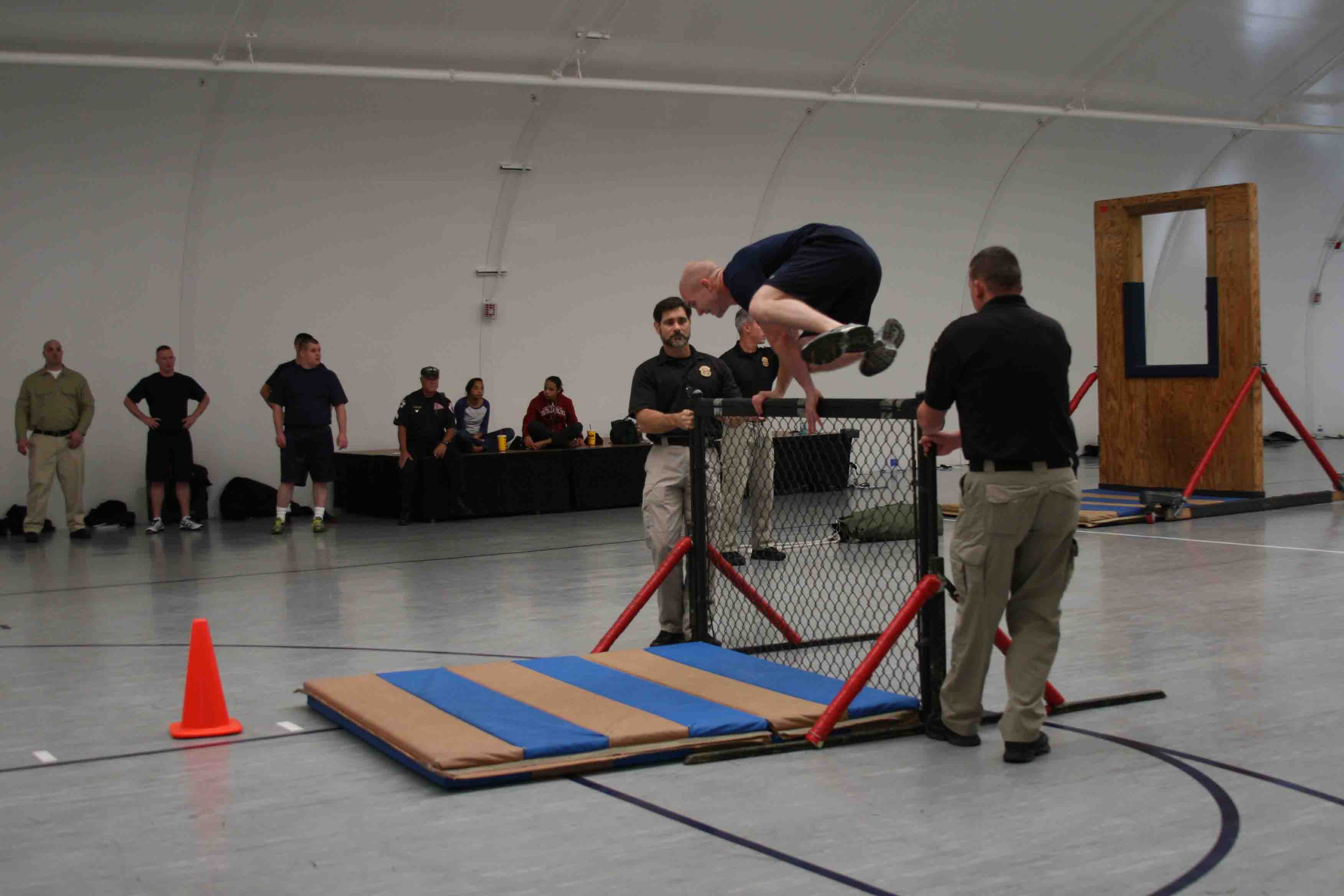On a recent Sunday, eight new police hires at the SC Criminal Justice Academy failed the physical fitness test. Of that eight, some never finished the test, others took too long and a few required medical attention.

Law enforcement recruits must pass a challenging physical agility test before they graduate from the SC Criminal Justice Academy. Photo: SC Criminal Justice Academy.
The failures — which took up coveted academy slots — might have been prevented if the departments that sent the recruits had devoted more time to preparing them for the physical demands of the course.
But putting new recruits through a pre-academy course or using a practice course at a nearby department aren’t the only ways to increase the likelihood of success once the new hires are enrolled at the academy.
There are other things a police department should do before sending new hires to the academy for training. One option is to give them aptitude tests, such as one from Standard & Associates or Nelson-Denny, to see if an individual is likely to pass the academy’s test.
Jackie Swindler, the director of the CJA, which is the certifying agency for law enforcement officers for the state, offered advice to municipal officials during the Municipal Association’s Annual Meeting in July. He said it is helpful to observe whether any new recruits show unfamiliarity or discomfort with firearms or forceful physical contact.
New law
Act 215 went into effect in May. It requires that when an officer has been charged with misconduct, his agency must immediately submit paperwork documenting the misconduct to the Criminal Justice Academy. The officer may request a hearing within three years of the charge.
“If you have a misconduct (incident), you are separated from that agency, and you cannot work anywhere in law enforcement until it has been adjudicated,” said Swindler. “Now that person has three years to ask for a hearing. If they don’t ask for that hearing, they’re done. If they ask for a hearing, our attorneys at the Criminal Justice Academy will hear their case and make a recommendation to our training council, which will make the final decision on whether or not that person maintains their certification.”
The new law, which the Municipal Association supported, represents a clear break from how things used to be done.
“In the past, if you have a misconduct (incident), you don’t work for that agency because they let you go. You cannot have a hearing until another agency hires you,” said Swindler. “Then you could ask for a hearing, and that could be three years or 10 years down the road. I do not understand why an agency would hire somebody who currently has a cloud of misconduct hanging over them, because you have just accepted liability.”
The change will enhance accountability and ultimately strengthen the relationship between police and residents, said Tiger Wells, governmental affairs liaison for the Municipal Association.
“I can’t overstate the significance of the fact that law enforcement associations from across the state led the charge to secure these changes in the law,” he said.
“Not only does the law define misconduct, but it also holds leadership responsible for reporting known allegations of misconduct. In so doing, the law enhances accountability by making it a lot harder for any bad apples to bounce from agency to agency. This, in turn, should help maintain or build relationships of trust between law enforcement officers and the public they serve.”
